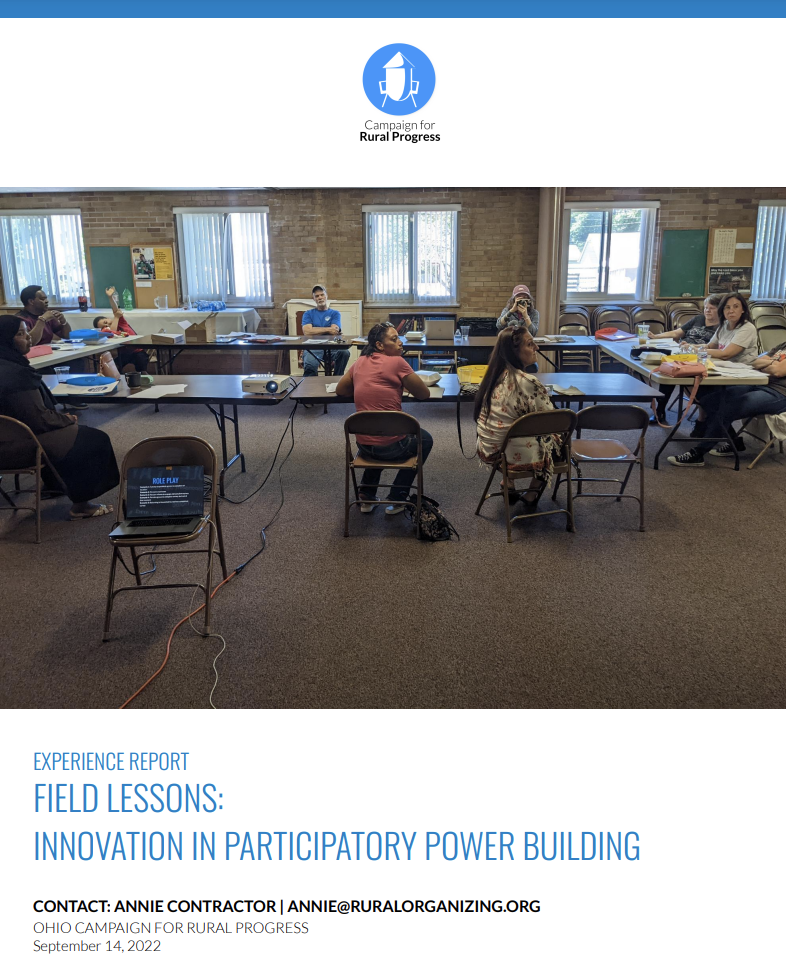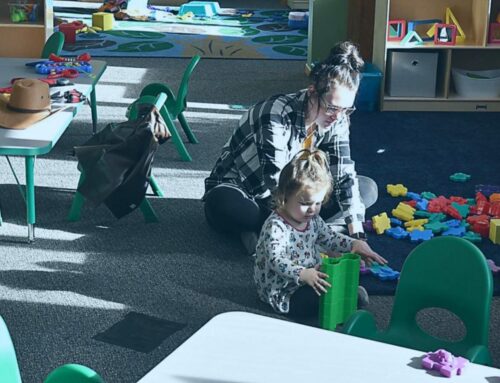A new report is available today from RuralOrganizing.org Education Fund reporting on the lessons learned and substantial opportunities for engaging rural residents in defining community needs for elected officials through an innovative use of a “drop-off/pick-up” surveying methodology which has been demonstrated to yield greater participation and reduce nonresponse bias.
The report draws on interviews from four field staff who conducted Local Progress Reports through their work with local organizations in Fairfield, Athens, and Licking Counties in Ohio. The field work reached 1,080 people in these three rural counties through randomized sampling of households in key census tracts where people with low incomes are more highly concentrated.
Key findings from the report on the field experience revealed that the process, itself, was a meaningful tool for driving progressive policies in rural communities. Semi-structured interviews with these field staff about their experiences revealed the following themes:
- The Local Progress Reports help shift the paradigm about people in rural communities.
- Rural progressive power in Ohio is possible: working from a nonpartisan angle opens doors (literally).
- Local Progress Surveys can hopefully change policy – and so much more.
- The Drop-Off/Pick-Up survey methodology is high effort/high reward.
Lessons from the organizational capacity building and survey deployment phase:
- There is limited understanding among surveyors of the value of community input – there is a misperception that if data is not numerical, it isn’t “valid” or “valuable.” Some training in CBPR could support better understanding which could expand local partners’ universe of possible paths for data utilization.
- The method is labor intensive, especially in rural areas. For groups not primed to the additional value, this significant labor lift could feel wasteful and lead to staff disengagement. As the project moves into the data utilization phase when community members could see the results of their participation playing out in local priorities, disengaged or frustrated surveyors could damage relationships in the community. ROEF has developed an Organizer Toolkit for how to develop and deploy Local Progress Reports with the DO/PU methodology; we have included this lesson in the toolkit.
Lessons to take into project replication:
- In early stages of the project ROEF invested in cultivating a shared purpose with the leaders of the local organizations implementing the project which included the connection between a realistic picture of community needs and opportunities for political action. However, some surveyors and their supervisors lacked this understanding. Projects with this goal will have to do more to train individual contributors and mid-level supervisors to the project’s purpose before implementation begins.
- The DO/PU approach is particularly resource-intensive in the most rural areas. Adjustments to staffing and output expectations should be revisited.
- Some participants asked to mail the survey back. For this approach, a cost/benefit analysis needs to be considered. The mail-in approach bears additional costs, reduces the opportunity for relationship-building, and carries risks like low levels of completion, higher rates of incomplete data, and having the data come from an outside influence. These considerations must be balanced against the added equity value of another avenue for participation, the possibility of receiving support from a trusted helper, and the trust garnered by listening to participants’ preferences.
- Using door-knocking, which is often affiliated with political canvassers, means that people may suspect a surveyor as an agenda even when the survey is developed in a nonpartisan way. The “Sorry we missed you” card is a useful tool in overcoming this barrier.
Download the report below to see more of our findings.




